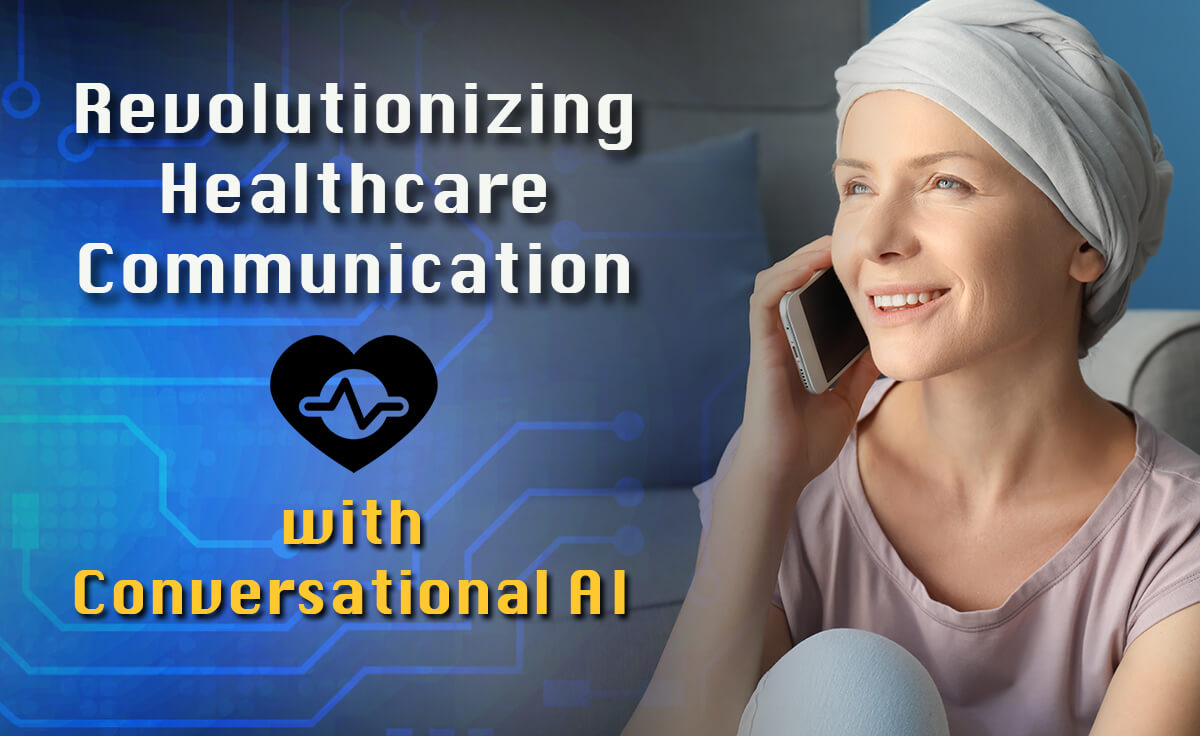Revolutionizing Healthcare Communication with Conversational AI
In a healthcare setting, service is fundamentally about healthcare professionals attending to a community of people.
There are people on both sides of these transactions, so it’s imperative that any conversational solution facilitating communication between these groups does so with efficiency, incurring as little frustration as possible to the served community. When patients want to ensure that their need is both properly understood and handled with empathy, most often, they choose the voice channel.
Every call to a hospital or clinic is important, yet the constraints of high call volumes and human operators often delay a patient’s access to care. With modern, conversational IVRs and intelligent virtual assistants, callers can speak naturally to accomplish routine tasks or be transferred to the right destination without involving a human agent. This decreases hold times while enabling operators and agents to be more available for callers who really need it.
The Healthcare ecosystem is unique, in that patients are often customers by need, not choice. It’s in the interest of healthcare providers to make each patient’s journey through their healthcare experience as easy and frictionless as possible. No one asks to have cancer, or to have a sick child. In addition, from a revenue perspective, health systems don’t want consumers to choose an alternative provider the next time they need care.
The healthcare industry deals with massive volumes of sensitive information that they are required to protect for the sake of their own business and by law. Health systems have access to patients’ contact information, social security numbers, credit card and banking data, as well as private health records. This makes hospitals and clinics some of the biggest targets for cybercriminals who will use that information to steal funds, commit identity theft, or sell it on the black market. The stakes are very real and very high. Compromised health information poses significant risk to the personal and financial safety of individuals. Beyond jeopardizing the privacy and security of patients, data breaches are also incredibly expensive for health systems. The average data breach costs a health system approximately $7.31 million. Additionally, HIPPA privacy and security regulations enforce strict fines and penalties for failing to adequately guard patient information. Unfortunately, incidents of cybercrime and data breaches are only increasing. In 2022, data breaches in the healthcare industry impacted 48.6 million people — that’s 8.6 million more than in 2021 and 14.6 million more than in 2020.
90% of all of data breaches in healthcare are connected to 3rd party vendors engaged by health systems. This statistic demonstrates the necessity that all vendors serving the healthcare industry equip their infrastructure to secure confidential information. The main risk factors that vendors face include:
It is therefore imperative that any conversational AI solution supports a health system’s commitment to deliver on great patient experiences.
One way that speech recognition solutions ease friction in the patient journey is by handling references to people with high accuracy. This refers to a patient wanting to talk to or make an appointment with their doctor, a doctor trying to get medical records for a particular patient, or families or friends trying to reach their loved ones in the hospital, to name but a few examples when getting the name right is important. Therefore, any automated conversational system engaging callers in the healthcare space should be able to handle names being said in the context of those engagements.
Yet, even today, most speech recognition systems are generally poor at recognizing and handling names.
Though most modern automatic speech recognition (ASR) engines are now trained on tens of thousands of hours of audio data, the frequency with which any particular first or last name appears in that data is extremely low compared to the rest of the language. This makes it difficult to establish well-trained models that can accurately recognize words involved for all but the most common names.
Parlance has been in the business of recognizing proper names for over 25 years. We have the BEST unique name recognition technology solution in the marketplace.
We address the challenges of name recognition by incorporating an organization’s directory information, including locations, personnel, providers, and patients, into the solution. Using a combination of our proprietary phonetic database and machine learning to model any previously unseen words, we build custom statistical language models to better recognize the vocabulary used by an organization’s calling community. We then use conversational AI and speech technologies, leveraging Natural Language Understanding (NLU) and Natural Language Processing (NLP) to acoustically analyze and process both the data and a system’s recognition results, to improve and ensure accurate Named Entity Recognition (NER). Using these methods, our solution can not only better discern intent but also recognize referenced entities with very high accuracy when callers speak naturally.
However, even with all these tools, Parlance understands that continuously improving performance and creating highly effective solutions requires more than just technology. The Parlance team knows what it takes to improve performance well and consistently, and that is why Parlance delivers every engagement as a fully managed service.
This combination of AI, expertise and attention produces name recognition and performance that is unrivaled in the industry.
This allows Parlance to conduct conversations about patients, doctors, facilities, locations, and other named things with high accuracy and low friction to the caller’s journey throughout any healthcare voice network.
At Parlance, we’ve been in the business of recognizing names of individuals, places, and things for over 25 years. We design natural dialogs that meet callers where they are, rather than at the limits of a given ASR engine’s capability, and our expert solutions engineers also make incremental improvements to your dialogs and directory data over time, tuning and augmenting it to ensure requested name coverage and proper pronunciation information is in place to keep the solution running well.
However, even with all these tools, Parlance understands that continuously improving performance and creating highly effective solutions requires more than just technology. The Parlance team knows what it takes to improve performance well and consistently, and that is why Parlance delivers every engagement as a fully managed service.
About Parlance
However, even with all these tools, Parlance understands that continuously improving performance and creating highly effective solutions requires more than just technology. The Parlance team knows what it takes to improve performance well and consistently, and that is why Parlance delivers every engagement as a fully managed service.
By Will Sadkin




